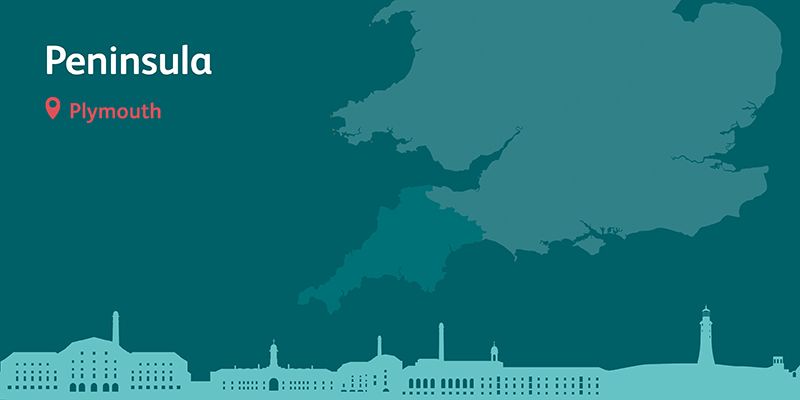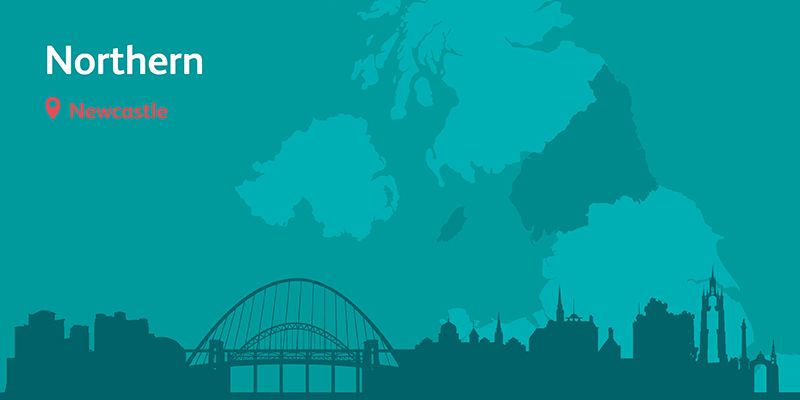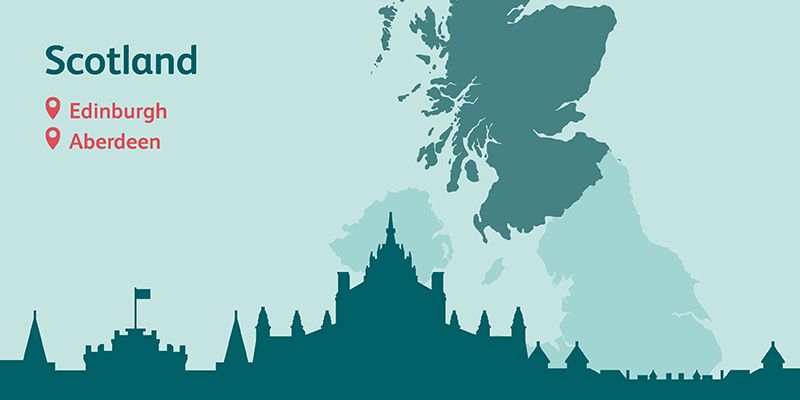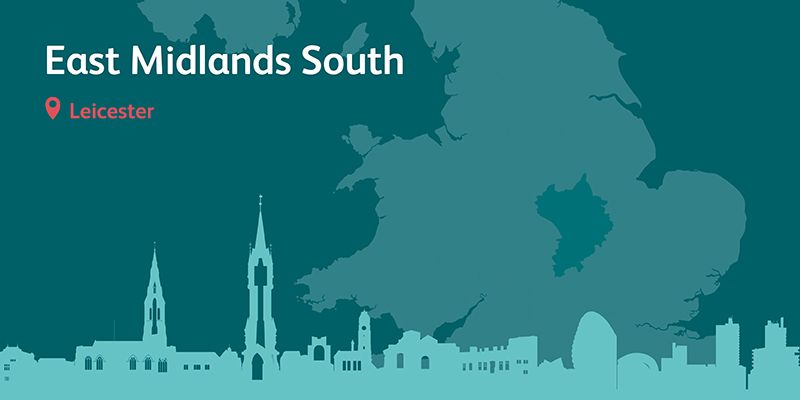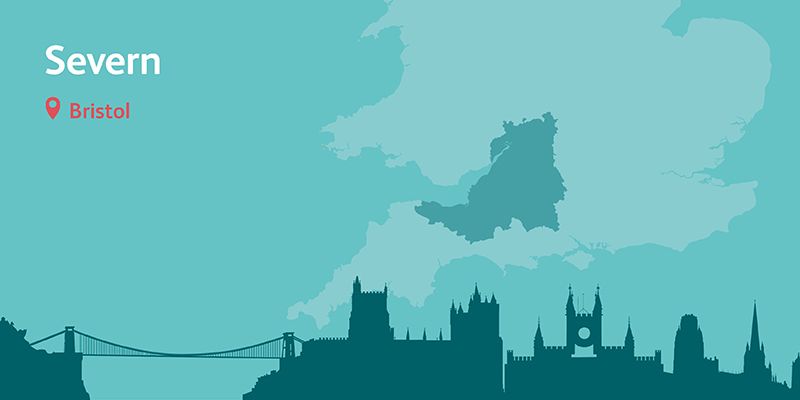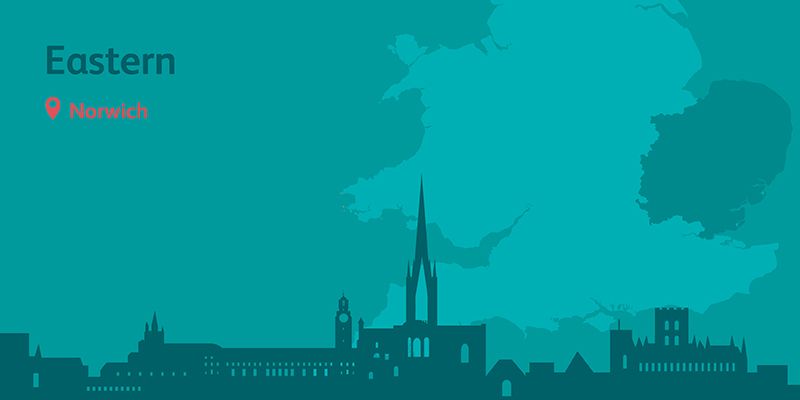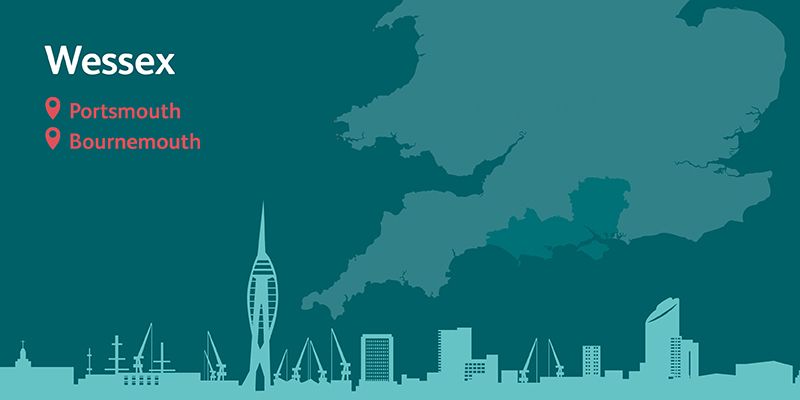Kate Straughton’s FPA presidential tour 2022
The Faculty of Physician Associates presents Kate’s presidential FPA tour 2022.
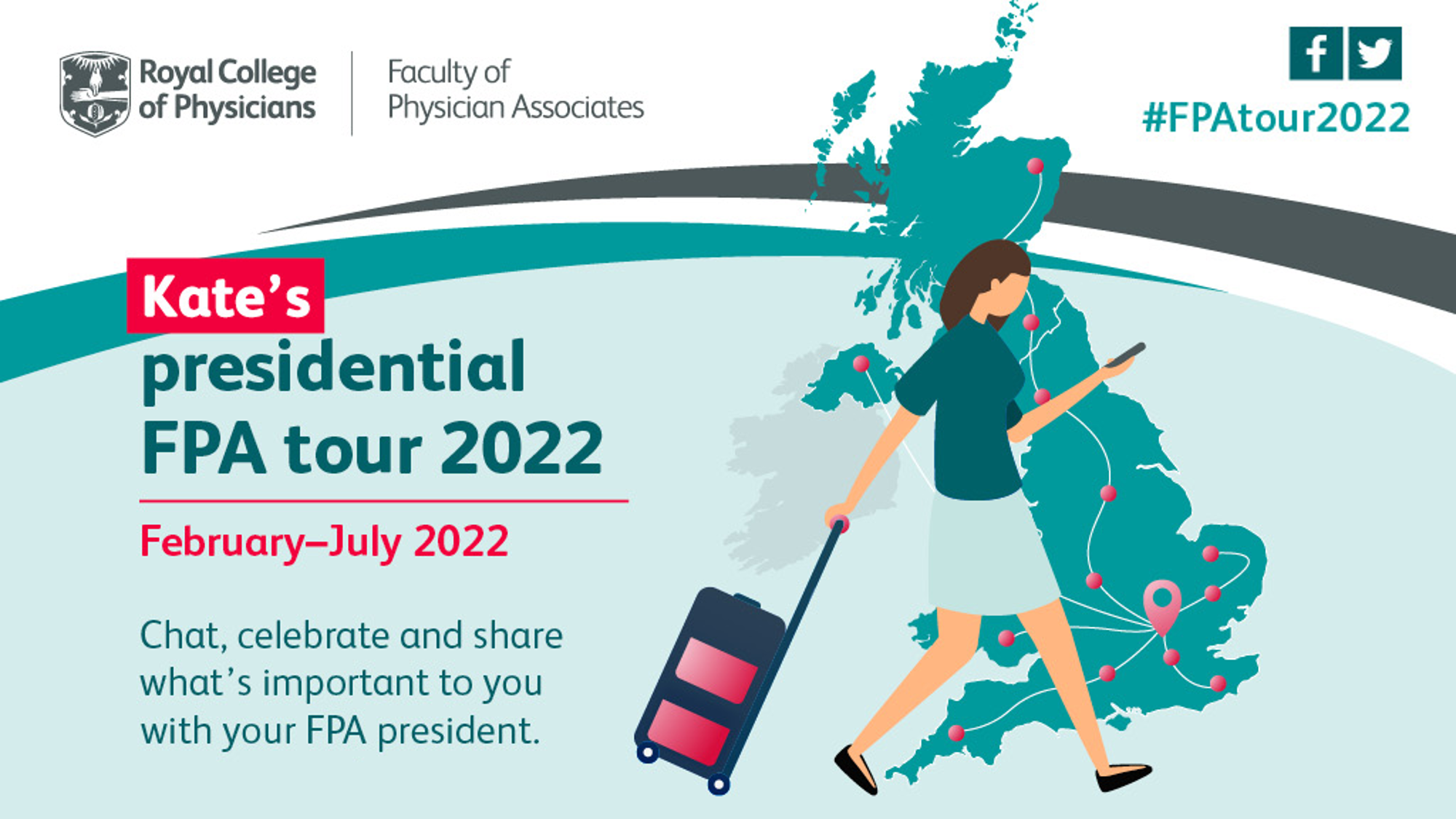
Kate will be visiting all devolved nations between February – July stopping at NHS Trusts and primary care providers to meet with and support our fantastic FPA members.
The presidential tour will offer both qualified and student FPA members the opportunity to:
- share achievements and celebrate successes
- discuss any concerns regarding the PA profession
- highlight innovative practice or areas for improvement. For example, CPD, career progression, mental health, and wellbeing support
- contribute to the future of the PA profession by sharing what is important to them personally
- grab a coffee with Kate.
Each session is a unique opportunity for FPA members to talk openly and honestly with Kate and to meet the team who will listen, help and support.
A full list of tour dates, regions is available now – see tour schedule. A full list of locations will be released soon and all PAs within each specific region will receive a personalised email invitation closer to the date of Kate's visit, so keep a close eye on your inbox. This ensures all members can be prepared with any topics they wish to cover or questions to ask. Event spaces will be limited, so register early to secure your place.
We're committed to ensuring that our events during #FPAtour2022 and beyond are tailored to your needs.
If you have attended a tour session, please take a few minutes (and it really is a few – we have kept this one short) to complete our feedback survey. You can also scan the QR code for access.

If you have any questions, have photographs from Kate’s visit to share with us, or want to provide any feedback please email [email protected].
In the meantime, come and follow us on Twitter and Facebook – use the hashtag #FPAtour2022 to join the conversation. You can also stay up to date with Kate’s journey by reading Kate’s chronicle – a diary of her journey coming soon.
Kate's presidential tour 2022 – schedule
| Date | Region | Location |
|---|---|---|
| Thursday 10 February 6–8pm |
South west England (Peninsula) |
Microsoft teams (Pre-booking required – registration for this event is now closed) |
|
Wednesday 16 February |
North east and north Cumbria  |
Microsoft teams (Pre-booking required – registration for this event is now closed) |
|
Thursday 17 February |
West Midlands  |
Microsoft teams (Pre-booking required – registration for this event is now closed) |
|
Thursday 10 March 3–5pm |
Mersey (Liverpool) |
Venue – Lecture Theatre B – University of Liverpool, Central Teaching Hub, Liverpool L69 7BX. Time – 3–5pm |
|
Wednesday 23 March – Thursday 24 March |
Scotland (Aberdeen and Edinburgh) |
Aberdeen Venue – Wednesday 23 March: 402 - Conference Room, Suttie Centre, University of Aberdeen, Foresterhill Road, Foresterhill, Aberdeen, AB25 2ZD Time – 2–5pm Edinburgh Venue – Thursday 24 March: Arthurs Seat Room, Post-Graduate Education Centre, Royal Infirmary of Edinburgh, 51 Little France Cres, Edinburgh EH16 4SA Time – 10–12pm Venue – Thursday 24 March: Western General Lecture Theatre, 4th Floor, Outpatient Building, Crewe Rd S, Edinburgh EH4 2XU Time – 2–5pm |
|
Wednesday 27 April |
Wales Cwmbran |
Venue – The Grange University Hospital, Seminar Rooms 3 & 4, Floor 3, The Education Centre, Caerleon Road, Cwmbran, NP44 8YN Time – 12pm |
|
Tuesday 10 May –Wednesday 11 May |
Yorkshire (Sheffield and Leeds) |
Tuesday 10 May – Sheffield Venue – The Arts Tower, lecture theatre 8, University of Sheffield, Western Bank, Sheffield, S10 2TN Time – PA students, 2–4pm Venue – Hick's Building, lecture theatre 5, University of Sheffield, Western Bank, Sheffield, S10 2TN Time – Qualified PAs, 5–7pm Wednesday 11 May – Leeds Venue – The University of Leeds Business School, Maurice Keyworth Building (lecture theatre G02), Leeds, LS2 9JT Time – 5–7pm |
|
Friday 13 May |
East Midlands South (Leicester) |
Venue – De Montfort University, Hawthorn Building, Lecture Theatre 00.36, The Gateway, Leicester, LE1 9BH Time – PA students 2–3pm / qualified PAs 3–5pm |
|
Thursday 19 May |
London |
Venue – 5 St. Andrew's Place, Margaret Turner-Warwick Room, The Royal College of Physicians, Regent's Park, London, NW1 4LE Time – 5.30–7.30pm |
|
Thursday 16 June |
Oxford and Thames Valley (Reading) |
Venue – University of Reading, JJ Thomson Building, Clinical Skills Suite (1st Floor), Whiteknights, Reading, RG6 6ED Time – 3–5pm |
|
Friday 17 June |
Severn (Bristol) |
Venue – Main Lecture Theatre, Learning and Development Centre, Science Quarter, North Bristol NHS Trust, Southmead Hospital, Southmead Road, Westbury-on-Trym, Bristol, BS10 5NB
Time – 12–1pm |
|
Thursday 23 June |
North Western (Manchester) |
Venue – Seminar room 1, Mayo Building, Salford Royal Hospital, Stott Lane, Salford, M6 8HD Time – 3–5pm |
|
Wednesday 29 June |
Eastern (Norwich) |
Venue – University of East Anglia, New Science Building, Norwich, NR4 7TJ Time – 3–5pm |
|
Thursday 7 July – Friday 8 July |
Northern Ireland |
Thursday 7 July – Belfast. Please note: this is a qualified PA event and registration for virtual attendance remains open. Venue – Belfast city hospital, lecture theatre, 51 Lisburn Road, Belfast, BT9 7AB Time – 3–5pm Friday 8 July – Derry/Londonderry. Please note: this is a student PA event Venue – Ulster University Magee Campus, room number MD007, Northland Rd, Londonderry BT48 7JL Time – 11–1pm |
|
Friday 22 July |
Wessex (Portsmouth/Poole) |
Microsoft teams – (Pre-booking required) Time – 10.15–12pm
|
|
Monday 25 July |
All regions – final virtual event |
Microsoft teams – (Pre-booking required) Time – 6–8pm |
Event spaces will be limited, so register early to secure your place.
To register your interest in joining your regional event, please email your full name, RCP code, place of work and the regional event you wish to attend to [email protected].
Please note: tour dates, locations and times are all subject to change.

South West (Peninsula)
It’s been a busy few months in the background preparing for the first session of the FPA presidential tour. I was delighted to welcome over 30 PAs from the south west (Peninsula) region on 10 February.
I want to extend my thanks to everyone who took the time to join us – pets and babies included. Your attendance and interaction during the session were very much appreciated, and I welcomed hearing about the challenges you face and how within the FPA we can help address them!
We were also joined by FPA board members, Jamie Saunders, Mikaela Carey, Pauline Weir, and FPA vice president Michelle Chapman. For those who couldn’t join us, or from within other regions some of the hot topics we discussed included:
- Career progression – we chatted at length about progression, including what progression PAs are expecting to be available. We also discussed the future career framework, what will it involve, and how it will benefit our profession, as well as topics such as prescribing and imaging.
- Educating PA supervisors and wider colleagues: it was clear that the region would benefit from employers being educated on the abilities of PAs. We are committing to review how we communicate with employers and supervisors to make sure that we are reinforcing the message about PA scope of practice and progression, as well as supporting you to bring up the topics with your seniors what your capabilities are and keeping a log of evidence to share.
- Clinical progression: FPA board member, Jamie shared how he records all his clinical progression, procedures, and skills regularly. A fantastic way to maintain a constant record of the skills he’s gained and a way to reflect on how he’s improving. All qualified FPA members can do the same by accessing the FPA toolkit. If you join your exclusive member's area you can also access an improved version – it is a great way to keep track of your progress and share it with your employer.
- PAs outside of the UK: we explored the options for PAs to work outside of the UK, how this looks, what’s involved, and how it may differ from the profession within the UK. For all delegates who registered for the FPA virtual conference in November 2021, you can access the FPA hub which has a series of PAs stories from around the world – you can catch up until 24 Feb!
Overall, I was so pleased with how engaged all attendees were. There were great questions asked, and clearly a lot of passion and enthusiasm in the area to get it right. We absolutely hear where you're coming from and will work to support you in every way that we can. I suspect that many of the topics discussed will come up again and again, but perhaps with slight regional variations.
Ultimately, this is what this tour is about – hearing from our members within their regions, celebrating your success, and helping to address some of your concerns. It directly feeds into how we prioritise our workloads, what our strategy is over the next few years and how we, simply put, can be there to help you as a membership organisation.
As we learned in this session, not everything will resolve overnight. Some things we need to take away and work on, but the only way we can learn about them is from you! To those who logged in and took the time to chat with us, thank you very much for your insights and your support. For members in other regions, if you’re not signed up for your regional event yet – go and check out the schedule… it’s going to be a pretty busy but insightful next few months!
North East and North Cumbria
Following the success of the first virtual event on my FPA presidential tour, I was excited for the second one. More so because it marked our first visit ‘up North’.
We welcomed over 20 qualified PAs and student PAs. Thank you to all of you who took the time to join. I was delighted at the level of engagement, that was maintained, along with the questions asked.
To that end, some of the hot topics included:
- Career progression: I expected this topic would be common – and I was right. As our profession continues to grow, it is natural for us to think about what is next for us. We discussed at length what the future, can look like for us, and the available opportunities. Many of those include getting involved with the FPA, and we regularly share these in member newsletters, so keep your eyes out.
- Additional opportunities: leading on from opportunities we explored the growing number of PAs being showcased in research and education. We have a spotlight coming soon which will showcase PAs in research, so there will be a great opportunity to learn more. RCP journals (Future Healthcare Journal and Clinical Medicine) are always looking for PAs to showcase their work.
- Clinical progression: as a profession, we now practice in over 50 specialties, and in the future, we will continue to grow further. We discussed, at length, the importance of maintaining PA exposure amongst a range of specialties and the scope of our skillset. What we know and learn as newly qualified PAs continuing to grow over time – we learn new skills, gain new knowledge, and perform more procedures. One way we can monitor this growth is through the annual FPA Census. Each year it welcomes FPA members to complete their response, and this helps form the basis of FPA activity and what is important, to our members. The 2021 census report will be released later in the year, and I would encourage all existing and future FPA members to complete their responses as it does help!
I’m pleased with how well our first Northern-based event went – and the level of engagement shown. Yet again, the objective of the tour is proven. We have come away with a greater understanding of the issues impacting our members and how we can look to work to support them!
If you want to share your thoughts, experiences, and ideas with us, why not register for your regional event? It’s not long before we hit the road, and I want to meet as many of you as possible.
Kate’s chronicle – West Midlands
The third (and final) virtual stop on my FPA presidential tour was my stomping ground. We welcomed a great selection of PAs working in primary and secondary care from the West Midlands region.
As always, I want to extend my thanks to everyone who took the time to join us, shared their experiences, and asked questions. We had a smaller group, but still a great level of engagement. The topics we chatted about included:
- A West Midlands physician associate group: currently, there isn’t a PA group or forum existing in the West Midlands region. Driving regional representation is a main objective for the FPA and was the driving force of this UK-wide tour. Members expressed their interest in having access to a local group and will explore the options. The full list of the current HEE PA ambassadors is listed on the FPA website.
- PAs working in Primary Care Networks (PCNs): we know from the 2020 census report that 30% of PAs currently work in primary care. At this event, we heard from PAs currently working in PCNs. They shared their thoughts on finding it difficult working across a range of practices and the scope of practice involved. FPA vice president Michelle Chapman shared guidance from Health Education England about the scope of practice for PAs working within PCNs.
- Guidance for employers: the importance of guidance for employers concerning a PA's scope of practice and support level was discussed. The FPA has a host of documentation available for PA employers to access. We do understand that documentation requires updating, and this is ongoing.
Concluding this event feels as though a key tour milestones has been met. All future events will now be face-to-face (COVID-19 permitting), and I can’t wait to hit the road and meet as many of you as possible.
Places at our physical events are limited. I highly encourage early registration to avoid disappointment. If you’re unsure when we’re coming to your region, look at the tour schedule in the tab above. As always, your thoughts, ideas, and questions are welcomed!
Kate’s chronicle – Merseyside
Following months of planning and three virtual events, I was delighted to finally take our FPA presidential tour on the road. The first physical event saw me and the FPA team visit Alder Hey Children’s Hospital in Merseyside (Liverpool).
Firstly, I must extend my thanks, and gratitude to the physician associate (PA) team, including the PA programme lead, clinical research facility clinical lead, lead PA, and PA in research, for their welcoming hospitality. It was an extremely insightful afternoon, and I was humbled to receive a tour from the PA team of one of their wards and the clinical research facility
Throughout the visit, it was clear to see the level of enthusiasm and drive the PA team had for the profession, and their roles. This continued to shine during our conversations. At length, we discussed:
- Scope of the PA role: the team shared insight into their specific roles, including how they work between wards and A&E, which allows them to continually develop their skills and autonomy. We also heard from a PA working in community care across several specialties. This positively showcases just how well the PA role works in this setting. As generalist healthcare professionals, we’re able to support multiple disciplines effectively, and it was inspiring to hear how successful this model is working at the Trust.
- Education and training: it was fantastic to hear how the PA team is providing varied levels of training to the nursing team. It was shared how this enables them to remove pressure from the nursing team and provide them with additional knowledge and support.
- PA support: as FPA president, it fills me with joy to hear about the positive level of support our PAs receive when in practice. This was highlighted throughout the visit to Alder Hey. The team expressed how they are continually supported by consultants, registrars, and the wider multidisciplinary team, and the level of support they bring to the team as PAs.
- PAs in research: the country's first PA to work in clinical research works at Alder Hey. It was insightful to hear about the projects being worked on and their plans to employ an additional PA in research in the future. As a faculty, we continue to encourage members to get involved in research opportunities, including the poster competitions held by the RCP and during the annual FPA conference. Keep an eye on your inbox for the April 2022 member newsletter where Alder Hey’s PA in research will be sharing an insight into the role. There will also be an article published in RCP’s magazine, Commentary showcasing the role.
The visit to Alder Hey highlighted further the reasons why this FPA tour is so important. Being able to hear directly from PAs in practice, celebrate their success, and support their future plans is what this is about. If you haven’t already registered or thought about joining your regional event, I would highly encourage you to come and join us.
Kate’s chronicle – Scotland
The first devolved nation to welcome our FPA presidential tour was Scotland. We kicked off the visit in Aberdeen (which I might add greeted us with some glorious sunshine) before we made our way to Edinburgh. We held three events in total across two days and were joined by over 40 physician associates (PAs) and PA students who all shared personal insight into their roles.
I was delighted to learn about the fantastic work happening in the region – in both primary and secondary care. Particularly, it was interesting hearing from those PAs working out in the community and pulling together as a team to support patients (keep your eye out for a spotlight series).
Scotland is also home to the FPAs PA of the year, Rebekah Meen. Rebekah won her award at the FPA virtual conference in 2021, and during our stop in Edinburgh, I was able to congratulate her in person and learn more about the great work she does.
Of course, across all events, we discussed at length a range of topics, including:
- Career progression: we discussed how career progression in Scotland will look and confirmed that NHS Education for Scotland (NES) has been commissioned to establish a career framework. The current Health Education England framework remains and will act as guidance and a referral source in the interim. We were lucky enough to meet with the medical associate professionals’ team at NES as part of our visit to Scotland, who are enthusiastic about the progress and development and were keen to learn from other areas as well as share their own successes as we go through the process.
- Regulation and recertification: during the tour presentation, an overview of what this will mean and look like for PAs is discussed. This covers what regulation will mean for us as professionals and our profession. At this moment in time, we can’t say if we will be required to sit a recertification exam, but we can be sure that CPD will remain a necessity for all PAs post-regulation.
- Growth of the profession: this was really exciting to hear about. There has been a lot of growth in the profession over the past couple of years, with PAs working across new specialties and new providers. NHS Lothian is now an employer of many PAs, with some innovative roles for PAs to support the local workforce.
- Getting involved with the FPA: it was fantastic to hear from a range of PAs working in new areas across the region. We’ll be working with them in the coming months to highlight their fantastic work and achievements. We’ve come away from Scotland with a huge list of ideas for our spotlight series, as well as some themes for our guidance notes on the FPA website membership area. If you have an interesting story to share or want to learn more about featuring in our spotlight series, contact FPA communications officer Jenna Donaldson via [email protected].
Scotland also marked our first visit to a GP practice. We were delighted to be invited to Brunton Place Surgery to meet Dr Samuel Watt and PA, Hannah. It was an insightful afternoon (complete with perfect hospitality and lovely cakes), discussing how well the PA role is working at the practice and learning more about their plans to extend the PA team in the future.
We still have two more devolved nations' visits to come. We’re heading off to South Wales soon and Northern Ireland in July. If you work in either region or anywhere else in the UK – we would love to meet you. Look at our schedule for more information.
Kate’s chronicle – South Wales
Just like that, we’ve completed the second devolved nation visit of our FPA tour. This time we joined the team at Aneurin Bevan University Health Board. Our session began with a presentation from Dr James Calvert, executive medical director, who delivered a presentation that highlighted the work and history of the physician associate (PA) profession in the region. We were also joined by FPA devolved nations representative for Wales, Alexandra Wolley.
It was fantastic to understand and hear from a range of physician associates (PAs) and learn that they work in over ten specialties. They include gastroenterology, acute medicine, care of the elderly, and stroke medicine. Following the session and FPA presentation, (which, as a sneak peek for anyone who is yet to attend a tour session, covers regulation – where we are at, the case for PA prescribing, career development, and plenty more) … I was given a tour of the hospital. Having the opportunity to meet more PAs and gain an understanding of how the hospital supports them in their role and employment, such as career development and progression.
So far on tour, we have been greeted with a range of questions, and South Wales didn’t disappoint as we continued to explore a range of themes. They included:
- PAs working within multi-specialties and specialist interest roles: the beauty of our role as PAs is we’re trained to a generalist medical model, and we’re able to move between specialties. This also closely links to career progression and what opportunities are available for PAs. The presentation I deliver on tour explores career progression more widely and discusses the various levels and avenues. If you haven’t been able to join a session yet and have questions about career progression, I would encourage you to get involved when we visit your region.
- Agenda for change: This is a topic that comes up from time to time. It asks whether PAs should be employed as part of Agenda for Change or whether a different model would be more suitable. This is a complex discussion, and I love hearing PA’s thoughts. Ultimately, this would require the majority of the profession to be keen and looking for change. I suspect that once we get through our transition around regulation and prescribing, this will be a discussion point that will come up more frequently, so keep your eyes peeled. Please also think about what your views on the subject might be.
We also discussed at length requesting non-ionising imaging and the challenges PAs face. To help support, we have created an infographic available inside the exclusive FPA members area. This allows you to print a copy and discuss it with your supervisor.
I had a chance to sit down with Dr Calvert to talk about his ideas for the future of PAs in the health board. I wish to thank him for taking the time to meet with me and share insight.
As always, it was fantastic to meet a range of PAs. We learned about the success and great work being done across multiple health boards in Wales, as well as gained more understanding of the regional issues and concerns. I continue to be impressed by the level of engagement from everyone involved and look forward to the FPA continuing to support the devolved nation.
Kate’s chronicle – Yorkshire
Sheffield
The Yorkshire stop of the tour was another exciting one as it saw us stop at two cities – Sheffield and Leeds. We kicked off the visit by meeting year 1 and 2 physician associate (PA) students at The University of Sheffield. Thank you to Dr James Gray, PA course director, and Claire Darling-Pomranz, PA and clinical teacher, for hosting us.
We met over 20 PA students who all shared an insight into their experience of the PA course and what they are looking ahead to the following qualification. High on the Q&A agenda was regulation and how this will impact the PA role when the time comes for the General Medical Council (GMC) to takeover. That’s what the FPA is here for. As the representative body for the PA profession, we’re here to guide and support PAs and PA students through the entire journey. The presentation I deliver on tour addresses what regulation will mean not only for the PA profession but for PAs as individual professionals too.
Other hot topics addressed included:
- Recertification post-regulation: at this stage, we can’t be 100% sure what the GMC will advise needs to happen post-regulation. What we do know is that all PAs will be required to maintain their continued professional development (CPD), and this requirement won’t change.
- Indemnity cover: 2nd-year PA students had a range of questions on this topic. As qualification approaches, it is right to be getting prepared and think about what you need to explore as a qualified PA. All PAs practicing in the UK are required to have professional indemnity coverage. PAs working in secondary care will be covered by their employer but can also seek additional cover. PAs choosing to practice in primary care will be required to maintain their cover. The FPA website offers more helpful information on the topic of indemnity cover.
Thank you to all the students who took the time to join us and remained engaged. The FPA wishes you all the best of luck as you continue your PA journey, and we look forward to supporting you upon qualification.
Competing our Sheffield regional stop was an evening event held with qualified PAs. While we were a smaller group, we covered a range of important topics. It was great to hear from the PAs who joined us from a primary care setting. They shared insight into how the role works regionally for them, including successes and the challenges they face navigating through a post-COVID-19 world as well as working as part of the additional roles reimbursement scheme (ARRS).
We also addressed PAs in leadership, and I was able to share that the FPA leadership programme is currently in the planning stages and will return in Autumn 2022. If you’re interested, keep a close eye on your monthly membership newsletters for more information.
I was delighted to have an open and honest conversation about clinical practice and some quite tricky areas. This is the main reason we’re touring the UK! We want PAs to share what they are facing every day, to make sure that we understand the role both nationally and regionally. If this means challenging times, it enables us to be aware and share how we can help address this in the future.
Simply, if we don’t meet you on tour, we aren’t going to know what some of the problems are and won’t be able to support you. We all want the FPA to represent members and to be able to make a positive contribution to those in the profession. Help us to do that by engaging with us, and thank you so much to those who have.
Kate’s chronicle – Yorkshire
Leeds
Thanks to the physician associate (PA) team at Leeds Teaching Hospitals NHS Trust, we had a fully packed schedule in the city. Our thanks and utmost gratitude go to the lead PA, Jen Cawood, who planned our visit perfectly and enabled us to meet with several representative groups.
We began our visit by joining the trust’s medical director for professional standards & workforce, associate medical director for the workforce, and a team of PAs. Lead PA Jen shared a presentation detailing the trust's position regarding their PA team. It was fantastic to see and hear the level of growth in the PA team across the trust and hear their plans to continue progressing the team across a range of specialties in the future.
We were then given a tour of the emergency department, haematology, respiratory, trauma and orthopaedics, paediatrics, and geriatrics. I was delighted to meet a range of PAs and PA students within each specialty and consultants/PA supervisors at St James’s University Hospital and Leeds General Infirmary. As FPA president, it is humbling and inspiring to meet our members in their natural environments doing what they love and showcasing to us how well they do it. It was especially great to hear from PAs who guide and mentor students while on placements in their wards. I was also stopped several times by staff members to make sure that I knew what an important part of the team the PAs were, with lots of mentions of ‘couldn’t cope without them’, ‘key member of the team’, and similar sentiments. The PAs in Leeds has clearly done a lot to embed themselves as part of the team and have been well received.
A key highlight from the day was meeting trust chief executive Julian Hartley who commented, ‘Physician associates are adding a tremendous amount of value across multiple specialties. They continue to play an important role in the life and work of the trust, and the future of the role is one to be excited about.’
Following the fantastic events of the day, we held our evening tour session at The University of Leeds, where another group of PAs, PA educators, and consultants/PA supervisors from within the region joined us. As always, we were delighted with the level of engagement and insight shared by everyone. The hot topics included:
- FPA leadership programme: designed to provide delegates with knowledge and skills that can be implemented immediately in their role, the FPA leadership course comprises themed workshops delivered by medical educationalists. The programme will be returning in Autumn 2022. Keep a close eye on membership newsletters for more information.
- How employers can support PAs ahead of regulation: This was an interesting question, and a key project the FPA will work on over the coming months as we head towards regulation. The FPA will be looking to support employers and supervisors, as well as PAs in the transition to regulation. This will work alongside the resources that we expect from the General Medical Council (GM) in the future too.
The visit to Yorkshire and the tour of the hospitals in Leeds showcases the benefits of our tour. It allows PAs to showcase their success and highlight best practices – and it gives the FPA an insight into what additional support and mentoring would be beneficial.
We’re not halfway through our tour yet, so we still have plenty more locations and PAs to meet. If we haven’t reached your region, check out our schedule to see when you can join us.
Kate’s chronicle – East Midlands South (Leicester)
From one excellent trust visit to another! Our thanks go to physician associates (PAs) Diane O’Meara and Dina Bateman at University Hospitals of Leicester NHS Trust. Thanks to them, we enjoyed a fully packed morning visiting PAs working at Leicester Royal Infirmary and Leicester Children’s Hospital.
We were lucky to be given a tour of the paediatrics, ED, and neonatal departments. During this, we met several PAs and consultants. A key takeaway from the visit was the level of enthusiasm every PA had for their role. It was clear how proud they were to share with us the work they are doing – and rightly so because they are doing a fantastic job. We heard from PAs working in the paediatric department who shared with us how they rotate between wards to continue growing their knowledge and skillset.
We also had the opportunity to hear from a consultant working with PAs in the paediatric emergency department. The feedback was glowing, and it was fantastic to hear their plans to want to employ additional PAs in the future. Another highlight was meeting trust chief executive Richard Mitchell. At length, we discussed how positively the PA model is working at the trust and what career progression opportunities there are for his team. One of the main reasons we embarked on our tour was to hear about the best practices and challenges that individual regions across the UK are facing. So far, we have gained invaluable insight that we’re able to share with various regions – as well connecting them. This was the case during our visit to Leicester as they currently experience similar challenges overcome by another region.
Following the events of the day, we headed to De Montfort University to host separate student and qualified PA events. While regulation is the main topic of my tour presentation, I wasn’t expecting to deliver the news of a likely further delay. My thanks go to all the delegates who joined us and took the news as well as they could. Of course, it wasn’t the news I ever wanted to have to deliver, but again, it shows the relevance of coming to tour events. It’s an ideal opportunity to understand more about what is happening in the background as not everything can be squeezed into monthly membership newsletters.
We ended our Leicester stop by meeting more qualified PAs and discussing several topics. Of course, the top of our agenda was regulation, closely followed by prescribing and the impact the expected delay may have on this function. I reminded everyone again that despite the current regulatory climate, as PAs, we have been functioning in this way (and now in over 50 specialties) for over 15 years.
I’m very confident that we will continue to perform more autonomous and complex roles in the future as we continue to prepare to become a regulated profession. Considering the news, I urge anyone who hasn’t yet been able to attend a tour session to think about registering to join us. It really does off you the perfect platform to have your voice heard. We welcome the good (and not-so-good) insight into what you’re experiencing. If it’s something particularly challenging, we can have a 1-1 discussion.
To that end, I’m excited that Leicester marked the halfway point of our tour. We still have another 7 regions to visit, and I hope hundreds more PAs meet. If we haven’t reached your region, check out our schedule to see when you can join us.
Kate’s chronicle – London
This was our first tour event held in the capital, as we’re returning towards the end of the tour for another. As always, I was pleased to see a range of physician associate (PA) colleagues come together. We saw great representation from PAs working in both primary and secondary care. I was also delighted to be joined by FPA vice president Michelle Chapman, FPA secretary Mikaela Carey, and FPA board member Pauline Weir.
While we are always greeted with a great series of questions at tour events, I was particularly pleased with the level of engagement from colleagues across the region. The event was also timely as we had recently launched our #RegualtePAsNow campaign in response to the new announcement addressing a further delay.
At length, we discussed:
- #RegulatePAsNow: we discussed the launch of our new campaign, which aims to raise the profile of regulation. Our response survey is currently open, and we welcome PAs and PA students to share with us their experiences about how the lack of regulation impacts them in their role. The survey will close on 3 June. Thank you to those PAs who have already shared their responses.
- Leadership development opportunities for PAs: several attendees expressed an interest in progressing in their roles and into leadership positions. The FPA is pleased to be supporting those PAs wanting to progress, and the FPA leadership programme will return in Autumn 2022. If you’re interested, keep a close eye on future newsletters as more information will be shared.
- Continued Professional Development (CPD): a requirement of all FPA members to remain on the Managed Voluntary Register (MVR) is to ensure that 50 hours of CPD are carried out each year. The CPD year ended on Thursday 31 March, but an extension has been granted due to the COVID-19 pandemic, meaning all FPA members have until Sunday 31 July to log all CPD activity in the CPD diary. CPD opportunities are shared in monthly membership newsletters, and the FPA virtual conference will be returning in late 2022, which will offer multiple CPD opportunities.
- How to get involved with the FPA: this is always a topic covered in the tour presentation. As the professional body representing PAs, we want your voice to be heard. There are multiple ways to get involved and showcase what you do as a PA. One of those ways is taking part in our spotlight series or sharing your story in support of a national awareness day. Opportunities are always shared via monthly membership newsletters and on social media (Twitter and Facebook). Please don’t wait for us to come to you – we love it when PAs approach us with an interesting or exciting story, and we’re always happy to explore and support them! If you’re interested or have an idea, contact the FPA communications officer, at [email protected].
That completes our first stop in the capital! If you couldn’t join us this time, we will be back on 20 July. We’re running another evening event, which we hope allows as many of you to join as possible. If work commitments don’t allow it, there is always the option of joining us virtually. The registration process is quick and easy too. Simply view our schedule and register for your chosen event.
Kate’s chronicle – Oxford and Thames Valley (Reading)
The fantastic trust visits continued when I headed further south to meet the team of physician associates (PAs) at Royal Berkshire NHS Foundation Trust. It was a brilliant morning and a great way to kick off my visit to the Oxford and Thames Valley region. I was guided on a tour through the emergency department, radiology, and urology. It was great to meet the trust’s PA working in interventional radiology and hear how well his role is working. Of course, I met several other dedicated PAs along the way. The brilliant work they do was continually highlighted, and it really made me feel proud.
After a successful and insightful morning, I joined the rest of our FPA team at The University of Reading in the afternoon. We held our #FPAtour2022 event and were delighted to be joined by over 25 delegates. We had a great mix of qualified PAs and PA students, which meant our topic of conversation and Q&A session was greatly varied.
Key topics included:
- Career progression: this is always a hot topic, and rightly so! We all need to understand where we are headed, clinically and personally. We chatted at length about the ways PAs are progressing in the region, including running their own clinics and providing training courses for colleagues. I was also pleased to share as part of my presentation that the Health Education England Core Capabilities Framework for medical associate professionals is soon to be launched. Keep a close eye on the FPA social media channels (Twitter and Facebook) and the news section of the website for a notification when this is live.
- Prescribing and requesting ionising radiation: another common topic of discussion is the case for PA prescribing. The presentation I deliver on tour covers this in-depth. We know that we won’t be able to prescribe until we are a regulated profession. We also know that PAs who are not from a background practising as a nurse or paramedic will not be able to register for independent prescribing courses until we are regulated. It is also worth considering that it is not yet confirmed that this will be the route for PAs to become prescribers in the long term. Currently, as PAs, we can request non-ionising radiation, and in response to some difficulties some regions are facing on this topic, we have created a guidance note inside the exclusive FPA members area to support. In the background, work is ongoing with the Royal College of Radiologists to begin post-regulation training, which will prepare PAs for when the time comes that we can request ionising radiation.
- Indemnity insurance: I was pleased to hear students discussing and asking questions regarding indemnity insurance. As PA qualification approaches for many, it is great to see the preparations begin. All PAs practicing in the UK are required to have professional indemnity coverage. PAs working in secondary care will be covered by their employer but can also seek additional cover. PAs choosing to practice in primary care will be required to maintain their cover. The FPA website offers more helpful information on the topic of indemnity cover.
Overall, I was thrilled with how the visit to the region went and the level of success and positivity that is taking place, which is all testament to the PA team, who are working hard continually promote the PA role in the region.
There are still 7 tour events to come, and I’m looking forward to meeting even more PAs and hearing about the success taking place in their regions. If we’re yet to visit yours, check out the tour schedule and join us!
Kate’s chronicle – Severn (Bristol)
The trust visit theme continued when we touched down in Bristol. The event was hosted by North Bristol NHS Trust and The University of West England. The wonderful team at Southmead Hospital invited us to meet with several physician associates (PAs) and consultants. It was an exceptionally insightful morning. It began with an overall tour of the premises, which was inspiring. The addition of a grand piano and player in the waiting area set a calming and relaxing atmosphere that I haven’t experienced inside a hospital environment for a long time.
We began by touring several wards and meeting PAs working in acute medicine, geriatrics, frailty, and stroke medicine. It was insightful hearing from the PAs who shared how they care for patients who have been directly admitted from GP surgeries and that they provide induction and training to new staff members. We were also joined in our afternoon session by the director of the medical workforce who shared details of training programmes for PAs in the region. It was really fantastic to hear about the level of specific PA training and education provided by the trust, and it’s clear to see how valued the PA workforce is.
We were welcomed by a team of PAs at Charlotte Keel medical practice. This visit was very timely as it closely followed the Panorama coverage relating to PAs in general practice. It offered us an ideal opportunity to check in face-to-face with PAs working in the area to gather their thoughts and ensure their working conditions were comfortable.
The visit to both primary and secondary care offered some great insight into how PAs are working in the region, which is fantastically well! As always, following the FPA tour update presentation, several topics were discussed.
- Regulation and prescribing: while at Southmead hospital, we were joined by the director of the medical workforce, who raised concerns relating to the delay in regulation. It was discussed how this can, be overcome given the announcement of a further delay, which was released in May 22. In response to the delay, the FPA is continuing to work closely with The Royal College of Physicians to campaign for #RegulatePAsNow.
- Progression into new specialties: career progression will always remain a key topic, and rightly so. As PAs, we’re continually evolving, scoping out new skills, and entering new specialties. We are delighted that shortly the Health Education England core capabilities framework for PAs will be released. Upon its release, the framework will become a powerful tool that will help to facilitate and guide PAs through key transitional stages of their careers. Upon the release, we encourage all PAs to become familiar with the framework and understand how it can support their progression.
- Non-ionising radiation: at the beginning of the FPA tour, we discovered how multiple regions struggled with requesting non-ionising radiation. As PAs, we can refer patients for ultrasound and MRI scanning. Due to the current legislative guidance, we aren’t able to request X-rays or CT scans. PAs in the region shared how they are unable to request non-ionising radiation, and this impacts the timely care for patients. For those PAs who can refer patients for non-ionising radiation, we have created a dedicated guide inside the exclusive FPA members’ area. This is guidance from the FPA to support PAs experiencing concerns.
Thank you to the team at Southmead Hospital, The University of West England, and Charlotte Keel Medical Practice for inviting us and sharing an insight into the fantastic work being done by PAs in the region and across a range of specialties. We remain #ProudofPAs.
While we’re a long way through the tour, we still have plenty of regions and PAs to visit! We have also decided to host one final virtual evening, offering FPA members from all regions the opportunity to attend. If you can’t visit us during one of our regional stops, join us at our final virtual evening event. Check out the tour schedule and join us!
Kate’s chronicle – North Western (Manchester)
From South to North (not the usual term, but we’ll put that down to my planning)! During this visit, it was time to head back ‘up North’ and meet with physician associates (PAs) from the North Western (Manchester) region. We were hosted by the fantastic team at Salford Royal Hospital. The afternoon began by visiting PAs working in respiratory medicine and orthopaedic surgery.
Following the insightful visit, we were joined by a team of PAs, PA students, and consultants supervising PAs. We had a great mix of attendees join us physically and online. If you aren’t already aware, all tour events offer physical and virtual attendance, meaning everyone can find an option that works best for them. Following the tour presentation, we had a series of great discussions, mainly focused on the following topics:
- Health Education England (HEE) core capabilities framework: PA career progression forms part of the tour presentation as it is such an important topic and will continue to be as our skillset grows. We discussed at length various specialties and how those PAs working within them operate, including what new skills they aim to become competent within. The upcoming release of the HEE core capabilities framework will set out clear expectations for PAs. It is recommended that PAs use the framework as preparation for appraisal to understand and develop training needs, comparing current skills and knowledge with those that are required.
- PA independent prescribing courses: an in-depth update regarding prescribing is given during the tour presentation. As an indication – it is coming, but not before we become a regulated profession. PAs who don’t have a background practicing as a nurse or paramedic will not be able to register for independent prescribing courses until we are regulated. At this current time, it isn’t confirmed that this will be the exact route PAs will need to take to become prescribers.
- Sick notes and death certificates: during the more recent tour sessions, we have been asked a few times about PAs involvement in the writing of sick notes. PAs can make recommendations for patients and write sick notes. However, they must be signed and approved by a general practitioner. Similarly, while a PA can confirm a death, we aren’t able to complete and sign a patient’s death certificate.
- Continued professional development (CPD): maintaining 50 hours of CPD each year is a requirement to ensure a PAs FPA membership continues. All CPD activity must be recorded in the CPD diary to remain on the FPA managed voluntary register. We understand there are other CPD recording options, such as online portfolios and systems. The FPA is currently exploring systems to best support our profession in our development and will update as we move further along in this project.
This event marked the final Northern tour session. Between all our Northern visits, we have met and witnessed first-hand how positively the PA role is working and how well supported PAs are in the region. Thank you to everyone who came to see us, shared their success, and asked some great questions. The Northern leg of our tour might be over, but we still have plenty more events to come across other regions. If you haven’t already signed up, see the tour schedule, and register to join us.
Kate’s chronicle – Eastern (Norwich)
The final event in June saw us travel far east to join physician associates (PAs) in the Eastern (Norwich) region. We held our event at the University of East Anglia. Joining us was a great mix of PAs from primary and secondary care, along with PA students joining us.
As always, that gave us an excellent insight into how the PA role is working in the region and well-supported colleagues are. At length, we discussed:
- PAs working around the world: it is a more common question than some people might think as more PAs explore the opportunity to work overseas. For those PAs who attended the FPA virtual conference in 2021, you may recall a hub presentation from PAs working around the world. They shared their experiences of practicing as a PA in different parts of the world. This will soon be available inside the FPA member area.
- Continued Professional Development (CPD): a common hot topic during the tour has been CPD. Questions have varied, but ultimately, it always comes back to us highlighting the importance of all FPA members ensuring they maintain 50 hours of CPD per year. In this session, we discussed the types of CPD available. In each monthly FPA membership newsletter, various CPD opportunities are highlighted. If you don’t receive the emails and you're a member, contact the team at [email protected]. Similarly, if you don’t read them, please do! They are jam-packed with updates – not least CPD. The annual FPA conference is always a key date in a PAs calendar. This year, it will be virtual again, and a packed programme is in the planning to ensure a full range of topics are covered. We also highlight the RCP Player, which is the RCP’s medical streaming service featuring bite-size videos and audio clips on different topics, which are all evidence- or experience-led, and are available to stream or download. RCP Player is free for all FPA members.
This event marked yet another milestone in our FPA tour journey. Following visiting the Eastern region, we have 3 more regions to reach until our tour of the UK is complete. Thank you to everyone who joined us at our Eastern (Norwich) event. I was delighted with the level of engagement and the great questions asked.
To all students, including FPA national student representative, Alana Hart, good luck with your upcoming PA National Exam! If you’re looking for some tips on how to get prepared, FPA Board member, Alexandra Chase has shared her story.
Kate’s chronicle – Northern Ireland
A new month brings a new devolved nation for us to visit on #FPAtour2022. Northern Ireland was the final devolved nation, and we were lucky to visit two cities – Belfast and Derry/Londonderry. We were also lucky to get to meet both qualified physician associates (PAs) and PA students.
Belfast
The Belfast leg of our tour saw us visit Belfast City Hospital. The event was organised by FPA devolved nations representative for Northern Ireland, Lia McNamee, who, had arranged a CPD day for all qualified PAs. Following the tour presentation, we discussed a range of topics that included:
- Career progression and PAs in leadership: this is one of the most discussed topics (for very good reason) and one that is covered in depth during the tour presentation. I’m always delighted to hear PAs thinking about the next step in their career. I’m also pleased that Health Education England (HEE) has now published their Core Capabilities Framework. The publication of the framework marks another exciting step in our journey and describes the skills and knowledge that we, as PAs, need to apply to deliver the best quality care to our patients. I highly encourage everyone to become familiar with the framework and to understand how it can help you as an individual plan your progression.
- Regulation: this remains the hottest topic of all tour conversations, and it’s the topic I cover most in my presentation. Understandably PAs and their employers are keen to understand and explore ways that they can get involved to help its progression. Thank you again to those PAs and PA students (over 350 of you) who submitted a response to our #RegulatePAsNow survey, which, was launched in May. We have been busy in the background, with the support of the Royal College of Physicians (RCP) to examine those responses. We will soon be sharing the next phase of the campaign and sharing ways that you, as PAs and your employers, can get involved.
Another topic of conversation with the FPA devolved nations representative for NI, Lia, was the growth of the NI PA profession. It’s fantastic to see this continue to grow at a steady pace and to hear about the great work being done by everyone in the region.
Derry/Londonderry
That leads us nicely to the second stop on our tour of NI – Derry/Londonderry! Here, we were hosted by Ulster University and joined year 1 and 2 PA students. Together, we discussed how their course and placements are going. They shared their learnings and asked a great series of questions. Topics included:
- PA course funding: There are significant challenges around being able to afford to study to be a PA, and this also varies across all 4 nations in the UK. We discussed how regulation might open doors to be able to support students financially, as well as how the FPA and RCP are acting on student voices from the Student Representative Group to review options such as pre-payment plans for the national exam.
- PA National examination (PANE) fees: understandably, as a PA student, there are a lot of costs, and students discussed the PANE examination fees and if they are likely to be increased. The PANE and PA recertification examinations are run by The RCP’s examination team which, reviews fees on an annual basis. They are also committed to providing exam candidates with as much notice as possible if an increase in fees is to be made. The examination fees for 2023 have now been published, and the 2022 exam fees remain unchanged.
- Recertification: it was great to hear that the students were already thinking ahead to what qualification and clinical progression will look like. Recertification is currently a requirement for all qualified PAs between their 5–6 of practice. As of yet, and until regulation is finalised, we don’t know what the General Medical Council’s (GMC) plans will be – and whether the PA recertification examination will remain active. As we continue to move towards regulation, the GMC’s plans will become more apparent.
Overall, the visit to NI showed a fantastic display of how the PA profession continues to grow and make a positive impact. I encourage anyone within the country with concerns or needing advice and guidance to connect with the FPA via NI devolved nations representative, Lia McNamee.
Thank you again to everyone who came out to join us. It was fantastic to meet you all and learn more about the work being done. I wish everyone with upcoming exams the very best of luck, and we look forward to welcoming you officially into the FPA community in the future.
Kate’s chronicle – Wessex
Just like that, here I am writing my final chronicle entry of #FPAtour2022! It’s hard to believe that after initially planning this tour at the beginning of my presidency that it's now complete.
Wessex was the final stop, and thanks to COVID-19 tracking me down for the first time, the event turned virtual. A massive thank you to our hosts, University Hospitals Dorset NHS Foundation Trust (UHDFT), for being so accommodating last minute. I was delighted that despite COVID-19 impact, we were still able to meet over 10 physician associates (PAs) virtually, along with senior consultants too and they were very gracious considering I was coughing the whole way through.
Our session began by learning more about everyone who joined us, and they shared what specialty they work within. I then virtually delivered our FPA tour presentation for a final time to a regional audience. I was keen to hear from the PAs and consultants in the region to learn more about their successes, challenges, and how the FPA can support them. After all, that is the main reason why the FPA tour began.
As always, it was humbling hearing about how fantastic the team of PAs is doing in the trust, including running their own clinics. UHDFT have been employing PAs for just a few years, and already, they are developing an extremely positive reputation. They are taking on an ambassadorial role and are seeing growth across more specialties.
We discussed a range of topics, as always, including:
- PA prescribing: following regulations, prescribing is the next major topic covered in the tour presentation. To clarify, we won’t be able to gain prescribing rights until we are a regulated profession. Understandably, this is frustrating, and it was discussed amongst Wessex PAs how they don’t feel equal because they can’t prescribe. While we’re unable to prescribe, as a profession, we continue to contribute so much more to patient care. Our profession now practices in over 50 specialties, we’re leading teams of PAs, providing training sessions, and leading on running our own clinics. Our ability to not be able to prescribe doesn’t make us un-equal, and I hope PAs who may feel this way realise what a fantastic job they do and the benefits they bring to their team and patients.
- Career progression: following on from the above, we discussed at length career progression for PAs, what this looks like, and if there is a clear path. The beauty of our profession is that we can create our own paths. We’re generalists’ healthcare professionals, which enables us to explore new specialties and continually grow our skills and scope of practice. Maintaining a constant record of your clinical achievements and skills is a key component to enabling you to monitor your progression. All qualified FPA members have access to the online exclusive member's area. This offers access to an improved member toolkit, enabling you to maintain a record of your achievements. If you’re not already a member, it is free to join as part of your existing benefits package.
Thank you again to our hosts, PAs, and consultants for allowing us to deliver the session virtually. I’m so pleased that we were able to still join you and end #FPAtour2022 on a high!

